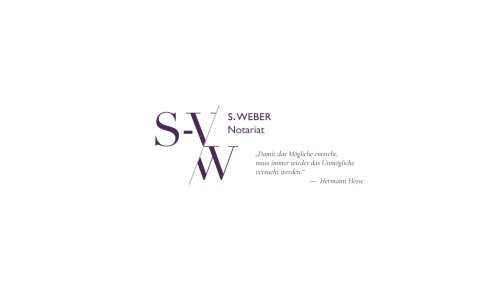Best Estate Planning Lawyers in Switzerland
Share your needs with us, get contacted by law firms.
Free. Takes 2 min.
Or refine your search by selecting a city:
List of the best lawyers in Switzerland
About Estate Planning Law in Switzerland
Estate Planning in Switzerland is a crucial process encompassing the management and distribution of an individual’s assets after their demise. Swiss law focuses on ensuring that the estate is divided in a manner that respects the testator's wishes while adhering to the country's legal framework. It involves drafting wills, establishing trusts, appointing executors, and dealing with various tax implications. The process is governed by the Swiss Civil Code, which outlines the legal standards for inheritance and succession. Understanding these regulations and requirements is vital for ensuring that one's estate is protected and distributed as intended.
Why You May Need a Lawyer
Seeking legal advice in Estate Planning is often beneficial due to the complex nature of the laws involved. Here are some common situations where a lawyer's expertise might be necessary:
- Complex Family Situations: In cases of blended families, estranged relationships, or multiple marriages, legal guidance is crucial to ensure equitable distribution.
- Cross-border Estates: If you're managing assets in multiple countries, understanding the interplay between Swiss law and international jurisdictions can be challenging.
- Tax Implications: Estate planning can involve significant tax considerations, and a lawyer can help minimize tax liabilities and maximize inheritance.
- High Net Worth Individuals: For those with significant assets, intricate planning is often required to protect wealth and ensure smooth succession.
- Disputed Will: If there’s a contest over the will’s validity or its contents, legal intervention might be necessary to resolve disputes.
Local Laws Overview
Estate Planning in Switzerland is mainly governed by the Swiss Civil Code. The key aspects include:
- Forced Heirship: The law stipulates that a portion of the estate must be reserved for close family members, limiting the testator's freedom to distribute assets solely based on personal preference.
- Testamentary Freedom: While forced heirship rules exist, individuals can still specify certain wishes through a last will, within the legal limits.
- Succession Treaties: Switzerland has agreements with various countries that affect estate settlement involving international elements.
- Executors and Guardians: The appointment of executors and guardians in a will must comply with specific legal standards.
- Legal Reserved Share: Direct descendants and spouses have a protected portion of the estate which cannot be excluded without legal cause.
Frequently Asked Questions
Can I write my own will, and will it be valid in Switzerland?
Yes, you can write your own will, but it must adhere to formal requirements, such as being handwritten, dated, and signed, to be considered valid under Swiss law.
What happens if I die without a will in Switzerland?
If you die intestate (without a will), your estate will be distributed according to the Swiss Civil Code’s rules on legal succession.
Are foreign wills recognized in Switzerland?
Foreign wills can be recognized, provided they comply with specific international law rules applicable in Switzerland.
Can I disinherit a family member?
While it's possible to disinherit within limits, you cannot exclude heirs from their legally reserved share without a valid reason recognized by law.
How are taxes on an inheritance handled in Switzerland?
Inheritance taxes are levied at the cantonal level, and rates can vary widely. Legal advice can help optimize tax outcomes.
Is probate required in Switzerland?
Yes, probate, or estate administration, is required to settle the estate, but the procedure may differ depending on the canton.
What is a holographic will?
A holographic will is one that is entirely handwritten by the testator. In Switzerland, it is recognized if it's duly signed and dated.
Can I change my will after it's written?
Yes, you can change your will anytime, provided you follow the formal requirements to ensure the revised will is legally binding.
Does Switzerland recognize joint wills?
While joint wills are not commonly recognized in Switzerland, mutual wills (wills with similar terms for both parties, often spouses) can be valid with legal guidance.
What is the role of an executor in Swiss estate planning?
An executor administers the estate, ensuring debts are paid, and distribution of assets follows the testator's will, within the constraints of the law.
Additional Resources
Several resources can be helpful in navigating estate planning in Switzerland:
- Swiss Bar Association: Provides information on finding qualified lawyers specialized in estate planning.
- Cantonal Tax Authorities: Offers guidance on regional inheritance tax requirements.
- Notary Associations: Notaries play a crucial role in estate planning; their services can be invaluable.
- Financial Advisors: Professionals who can offer advice on wealth management and tax planning in relation to estate matters.
Next Steps
If you're in need of legal assistance in Estate Planning in Switzerland, the following steps can guide you:
- Consult with a Lawyer: Reach out to a legal professional specializing in estate planning to discuss your situation and goals.
- Organize Your Documents: Ensure all relevant documents, such as existing wills and asset lists, are up-to-date and readily available.
- Define Your Wishes: Clearly outline your intentions regarding asset distribution, guardianship, and executorship.
- Review Regularly: Estate planning isn't a one-time task. Regular updates and reviews are necessary, especially after major life changes.
- Consider a Family Meeting: Discussing your plans with family can help mitigate future disputes and ensure clarity in your wishes.
Lawzana helps you find the best lawyers and law firms in Switzerland through a curated and pre-screened list of qualified legal professionals. Our platform offers rankings and detailed profiles of attorneys and law firms, allowing you to compare based on practice areas, including Estate Planning, experience, and client feedback.
Each profile includes a description of the firm's areas of practice, client reviews, team members and partners, year of establishment, spoken languages, office locations, contact information, social media presence, and any published articles or resources. Most firms on our platform speak English and are experienced in both local and international legal matters.
Get a quote from top-rated law firms in Switzerland — quickly, securely, and without unnecessary hassle.
Disclaimer:
The information provided on this page is for general informational purposes only and does not constitute legal advice. While we strive to ensure the accuracy and relevance of the content, legal information may change over time, and interpretations of the law can vary. You should always consult with a qualified legal professional for advice specific to your situation.
We disclaim all liability for actions taken or not taken based on the content of this page. If you believe any information is incorrect or outdated, please contact us, and we will review and update it where appropriate.
Browse estate planning law firms by city in Switzerland
Refine your search by selecting a city.















